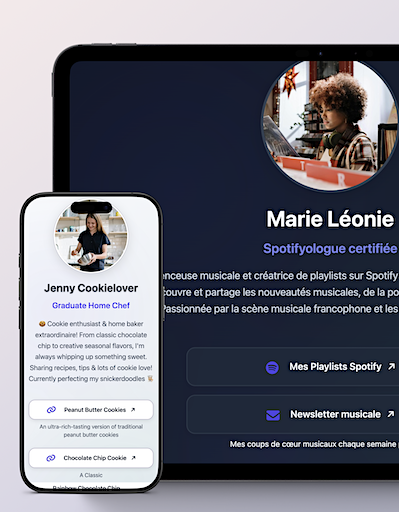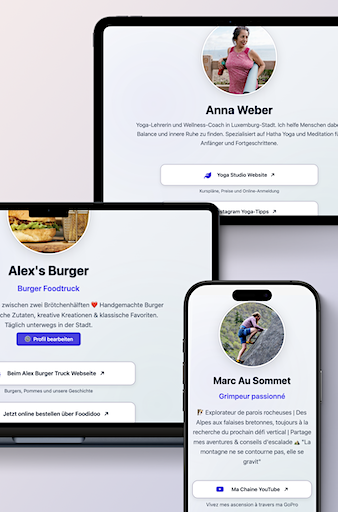Einfach & Iwwersiichtlech
Presentéiert Iech op enger schéiner a klorer Säit

Presentéiert Iech op enger schéiner a klorer Säit
Wielt Emojis fir Är Linken a füügt Är Biografie derbäi
Gesäit op all Ecran gutt aus – um Handy oder um Computer
Kee Kont néideg, fir Är Profilsäit ze kucken


Maacht e gratis Konto op a confirméiert Är E-Mail
Setzt Är Profilfoto, Biografie an Titel derbäi
Deelt all Är wichteg Linken op enger Plaz